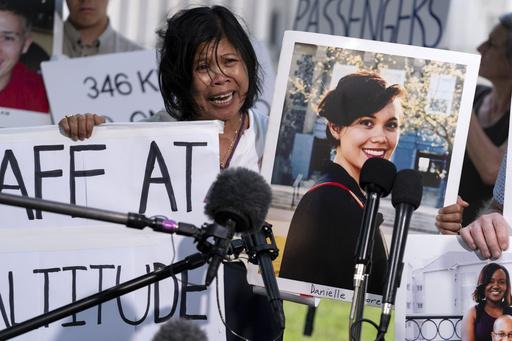Boeing potentially faces a felony conviction if it proceeds with an agreement with prosecutors to plead guilty to fraud related to the approval of its 737 Max aircraft before two fatal crashes. The crashes, which occurred in Indonesia and Ethiopia, claimed the lives of 346 individuals. Boeing seems to have opted for admitting guilt rather than engaging in a lengthy public trial to combat the charges.
The plea deal, however, is facing challenges, as some relatives of the crash victims are expressing dissatisfaction with the terms of the agreement, which they deem too lenient given the gravity of the lives lost. They are advocating for a trial, a substantial fine, and for Boeing executives to be held accountable.
In the legal filing, the Justice Department revealed the agreement and specified that the fraud charge reflects the most severe offense that can be readily proven against Boeing. As part of the deal, Boeing will pay an additional $243.6 million fine, and another $243.6 million matching the fine paid in 2021 for the same offense. The Justice Department insists that a fraud conviction will establish accountability for the misrepresentations made in the certification process of the 737 Max.
Investigations are ongoing regarding the blowout of a panel on an Alaska Airlines Max, coupled with increased FAA oversight and allegations of substandard workmanship and reprisals against whistleblowers by current and former Boeing employees.
Boeing admitted to conspiring to defraud the United States, essentially deceiving the FAA regarding the 737 Max. Initially charged in 2021, Boeing was under a deferred-prosecution agreement which the Justice Department found unfulfilled in May, leading to the recent plea deal. Boeing is to pay a total fine of $487.2 million, with additional investments of at least $455 million for safety enhancements and court-ordered probation for three years.
There will be a hearing before U.S. District Judge Reed O’Connor in Texas, where he will determine the fate of the agreement. The judge has the option to either accept the plea deal with no alterations to Boeing’s punishment or reject it, prompting potential renegotiations between Boeing and the prosecutors.
Family members of the crash victims have expressed outrage at the agreement, feeling that justice has been denied. They wanted a trial to uncover more details regarding the crashes and hold Boeing accountable for the lives lost. The plea agreement, they argue, falls short in addressing the severity of the situation.
The plea deal solely relates to the fraud charges tied to the deadly crashes and not to other investigations concerning Boeing. The incidents involving faulty flight-control software in the two crashes resulted from erroneous sensor readings, contributing to the tragic outcomes.
Boeing’s business has struggled to recover post-crashes, evidenced by a decline in orders for the Max aircraft and lagging behind its competitor Airbus in production and delivery of new planes. The company is currently searching for a new CEO. While the share price ticked up slightly following the recent developments, future implications remain uncertain.
The plea agreement may not lead to Boeing losing government contracts. However, the company could face repercussions as government agencies assess the situation and determine appropriate steps to safeguard federal interests. Overall, the plea deal is regarded as a critical step in addressing the fallout from the 737 Max crashes and the subsequent investigations into Boeing’s conduct.


